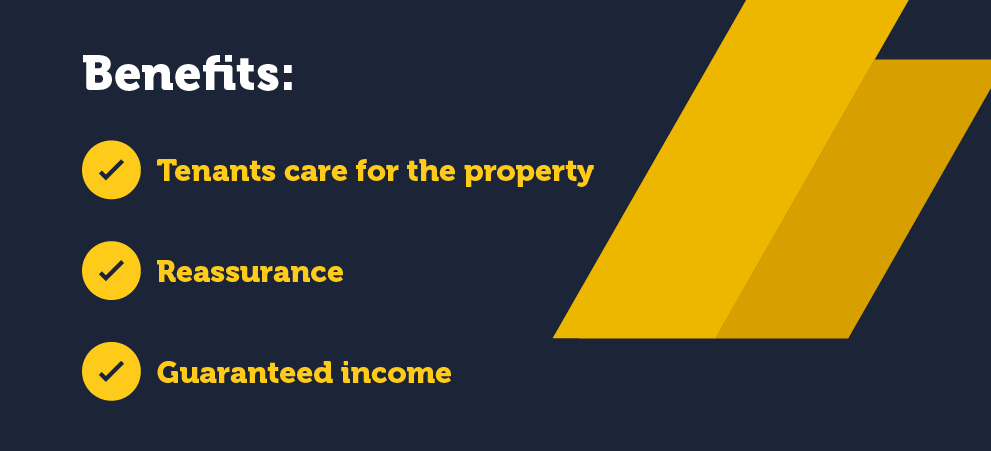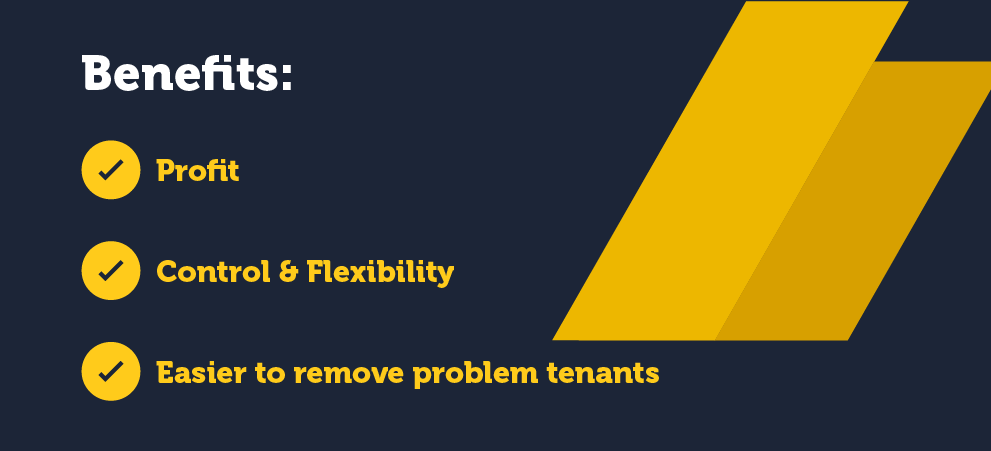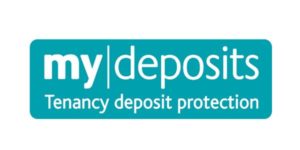If you’re the owner of an investment property and want to make an income from it, you may be wondering whether it’s more lucrative or beneficial to offer short term renting or long term renting to tenants.
In our latest blog, we explain the difference between the two and share the pros and cons to help you make an informed decision. Read on to find out more.
Long term tenancy agreement
A long term tenancy agreement is defined as being a minimum of 6 months up to 12 months, and is a standard business model for many landlords. At the end of the tenancy period, the agreement can then be renewed if the arrangement is still agreeable for both the tenant and landlord.

Benefits
Reassurance: Not only does having long-term tenants mean you don’t have to worry about regularly marketing your property and requires less effort from you, but you will know that it will be occupied for an extended period of time. As a result, you will have extra reassurance and peace of mind.
An income that’s guaranteed: Although nightly rates for renting short term properties can result in more money being made for you as a landlord, having a guaranteed tenant in situ for a long term basis means that your income will be locked in.
Tenants are more likely to take care of your property: As long term tenants know they will be living in your property for at least 6 months, they will be much more invested in it. This means they will probably want to ensure that it is taken care of and that it is maintained to a high standard.

Drawbacks
No flexibility: Although having a guaranteed income is a plus, if your circumstances change or you want to have friends/family to stay at your property over the summer, a 12 month tenancy agreement does not provide the flexibility to allow that which may prove difficult for some landlords.
Lack of control: Compared to short term rentals, where you can enter the property on a regular basis once tenants have left and conduct cleaning/maintenance to your own standards, with long term rentals you have handed over that control and how your property is cared for stays in the hands of your long term tenant.
Short term tenancy agreement
A short term tenancy agreement is typically defined as the rental of a holiday property, such as those advertised on Airbnb, or the occasional rent of an empty room or property where a tenant needs somewhere to stay on a short term basis.
It is important to be aware that if you have invested in a flat that is located in a block, your leasehold may have a clause that prevents short term renting.

Benefits
Profit: Multiple sources show that landlords can earn anywhere from 30% to 60% in returns for short-term lets compared to long-term lets (depending on location). Thanks to popular holiday let platforms such as Airbnb, short term renting provides a very lucrative opportunity.
Complete control and flexibility: As a landlord, when you choose to rent out your property on a short term basis, you have complete choice and control over the length of time and also the people that you rent it out to as well. Plus you can also choose to take the listing down if your situation changes, and if you want to use your rental with your family over the summer then you can also block out those days in your calendar too – something that wouldn’t be possible with long term lets.
Easier to remove problem tenants: In the unfortunate event that you let your holiday property to tenants who go on to damage it or behave inappropriately, thanks to the rules and guidelines of platforms such as Airbnb it will be much easier for you to remove them, giving you total peace of mind and reassurance.

Drawbacks
Being available to tenants 24 hours a day: One of the biggest downsides to renting your property on a short term basis is that you will need to be available 24 hours a day to respond to their messages as well as meet them and show them around. Alternatively, you may want to consider paying someone to fulfil this role for you, which will obviously reduce the amount of income that you earn.
Regular cleaning: As short-term house rentals will have new guests and tenants arriving on a regular basis, this means you will need to factor in cleaning, dusting and vacuuming, as well as washing towels and bed linen, which in some cases may need to happen a couple of times a week. Again, if cleaning is not something you enjoy then you could consider hiring someone to do this for you, but you will need to ensure that you charge an appropriate cleaning fee to allow you to cover your costs.
Lack of reference checks for tenants: Compared to long term accommodation rentals, where tenants will need to have had a certain number of reference checks in order to secure your property, you will need to essentially welcome strangers into your home when renting short term. Although holiday platforms will help to ensure a certain element of trust is maintained, this is something that you need to accept as a landlord.
Promotion is essential: In order to ensure that your property stays visible and you achieve a high number of guests, you will need to continuously promote and market your property, which will mean utilising the tools available on your holiday platform as well as other digital channels such as social media.
What else do I need to know about short term tenancies and long term renting?
For short term house rentals, if you use holiday platforms such as Airbnb then you need to ensure that you are aware of the importance of your reputation. Bad reviews and refusing to reply to guests or potential guests can damage your ratings and visibility on the site, which may impact future bookings and reduce the amount of income you make. In addition, you should also be aware that depending on where your property is located (like London for example), regulations may prevent you from renting your property out on a short term basis for more than 90 days. Therefore, it’s really important to do your research first in order to reduce the risk of fines or legal challenges.
When it comes to long term holiday lets or rentals, there is also a lot more red tape that landlords need to be aware of. For example, you need to ensure that tenants’ deposits are safeguarded in a government-approved deposit scheme, and you will also need to give every tenant a copy of the Energy Performance Certificate (EPC) too.
Hopefully, after reading this blog, you have a much better understanding of short term vs long term tenancy agreements, but if you have any further questions then please don’t hesitate to get in touch with our team.



















